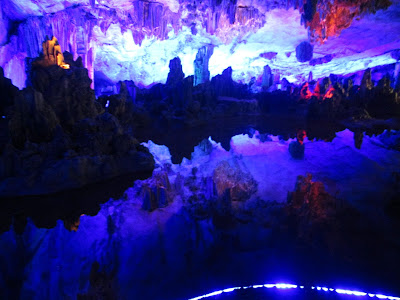
My second time to Dali, this time with my wife. The train ride from Kunming is only about 6 hours, but we got a sleeper anyway just for the luxury of being able to stretch out (and to take an afternoon nap).


Evening dancing in old town Dali.


And back for a second visit to Dali's famous Three Pagodas.


Many Chinese honeymooners were in Dali dressed up for wedding photo shoots.

I took this photo and the one below at Putuo Island on Erhai Lake. From Dali we took a taxi to the small lakeside town of Caicun, then from there a 45-minute ferry out to the island.


Back in Dali old town, practicing my drumming.

We had a visitor at our inn, who came in one morning and slept under our bed while we did yoga. Better than some of the visitors I've had at other hotels in the past, like mice and cockroaches.

I saw a lot of men smoking these metal water pipes in Yunnan Province. You can buy them online for about $50, but probably can get one much cheaper in Yunnan.
http://www.aliexpress.com/item/Authentic-yunnan-stainless-steel-water-pipe-water-super-light-portable-retractable-hookah/32212273040.html














































